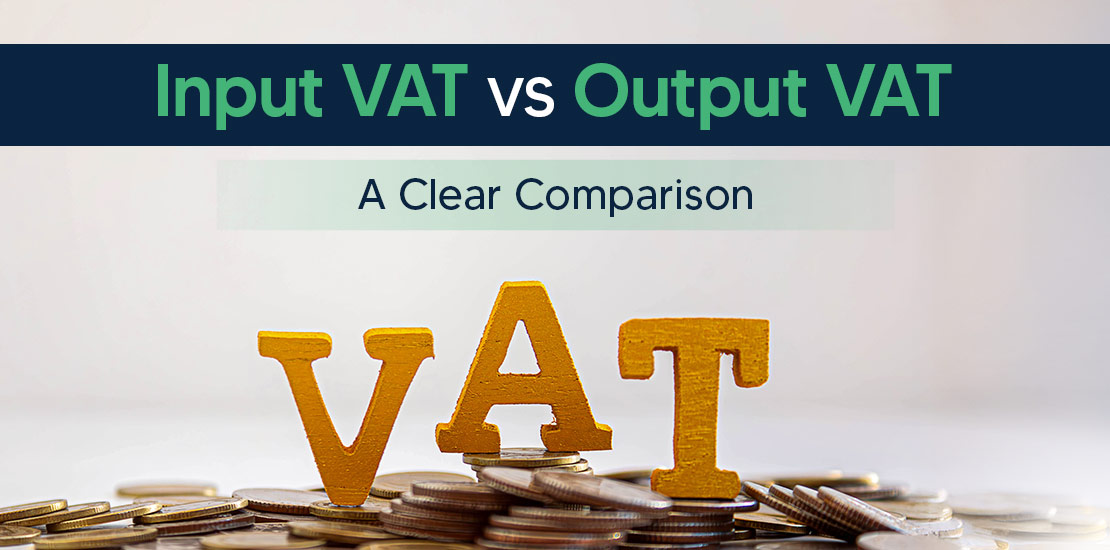Starting a business is exciting, but understanding its worth is crucial for securing investments, partnerships, and long-term success. Startup valuation is the process of determining the value of a new business, considering various factors such as revenue potential, market trends, and growth prospects. Accurate business valuation for startups helps founders attract investors, negotiate fair deals, and plan financial strategies effectively.
This blog delves into the significance of startup company valuation, explores the challenges faced, and discusses various start-up valuation methods to ensure a precise assessment.
Understanding Startup Business Valuations
Startup valuation is the process of determining how much a new business is worth. Unlike established companies, startups often don’t have a financial history, making valuation more challenging. Instead, factors like intellectual property, market potential, product uniqueness, and the strength of the team play a key role in assessing value.
A clear and accurate valuation helps startups raise funding, offer equity, attract the right partners, and make smart business decisions. Investors use different methods to estimate a startup’s growth potential and expected returns before making investment decisions.
Challenges in Startup Valuation
Valuing a startup presents several challenges, including:
- Lack of Financial History: Unlike established companies, startups have minimal financial data, making it difficult to apply traditional valuation methods.
- Market Volatility: Startups operate in dynamic markets where trends and consumer preferences change rapidly, affecting their valuation.
- Uncertain Revenue Streams: Many startups do not generate revenue initially, making valuation predictions speculative.
- High Failure Rate: The risk of failure is significantly high in startups, leading to lower valuations by cautious investors.
- Dependence on Future Projections: Startup company valuation relies heavily on future projections, which can be uncertain and subject to market conditions.
- Intellectual Property Challenges: A startup’s IP and patents contribute to its valuation, but assessing their actual market value can be challenging.
- Scalability and Competitive Landscape: A startup’s ability to scale and compete in the market influences its valuation, making investor confidence crucial.
Why Accurate Startup Company Valuation Matters?
Accurate business valuation for startups is essential for several reasons:
- Attracting Investors: Investors need a fair valuation to determine if a startup is worth their capital.
- Negotiating Equity Deals: A precise valuation helps founders negotiate better equity distribution with investors.
- Strategic Planning: Understanding a startup’s worth enables founders to set realistic financial goals and expansion strategies.
- Exit Strategies: A well-documented startup company valuation facilitates mergers, acquisitions, and public offerings.
- Securing Business Loans: Financial institutions may require a startup valuation to approve loans or credit lines.
- Benchmarking Growth: Tracking valuation over time helps businesses measure their success and growth.
What are Startup Valuation Methods?
Several start up valuation methods are used to assess the worth of a startup. The most commonly used techniques include:
1. Comparable Market Analysis (Market Multiple Method)
This method involves comparing startups with similar companies in the industry. Investors analyse recent acquisitions and valuations of comparable startups to estimate a fair value.
How It Works:
- Identify similar startups in the same industry, size, and growth stage.
- Gather financial data, such as revenue, EBITDA (Earnings Before Interest, Taxes, Depreciation, and Amortization), or user base.
- Based on industry standards, apply a multiple (e.g., 5x revenue, 10x EBITDA).
Pros:
✔ Simple and quick to apply.
✔ Uses accurate market data for estimation.
Cons:
✖ Assumes that all companies operate under similar conditions.
✖ Market conditions can change rapidly, making past data less reliable.
2. Discounted Cash Flow (DCF) Method
The DCF method calculates the present value of future cash flows that a startup is expected to generate. Since startups often lack stable cash flow, this method relies heavily on assumptions and forecasts.
How It Works:
- Forecast future cash flows for the startup.
- Apply a discount rate (usually high for startups due to risk).
- Calculate the present value of these cash flows to determine valuation.
Formula:
DCF=∑Ct(1+r)t\text{DCF} = \sum \frac{C_t}{(1+r)^t}
Where:
CtC_t = Expected cash flow in year t
rr = Discount rate (risk-adjusted)
tt = Number of years in the forecast
Pros:
✔ Useful for startups with expected revenue growth.
✔ Accounts for the time value of money.
Cons:
✖ Highly dependent on assumptions, which can be inaccurate.
✖ Not suitable for early-stage startups with no financial history.
3. Berkus Method
This valuation model assigns a value to five key elements of a startup:
- Concept and product prototype
- Market potential
- Management team expertise
- Strategic partnerships
- Early customer traction
Each factor is assigned a value (e.g., up to $500,000 per factor), and the sum determines the startup’s worth.
Pros:
✔ Works well for pre-revenue startups.
✔ Evaluate qualitative aspects that other methods ignore.
Cons:
✖ Subjective and depends on the investor’s judgment.
✖ Can undervalue high-growth potential startups.
4. Scorecard Valuation Method
This method compares a startup with similar startups in the industry and adjusts its valuation based on factors like market opportunity, team strength, and product viability.
How It Works:
- Start with an average valuation of similar startups in the industry.
- Adjust valuation based on factors like:
- Market Opportunity (e.g., 30%)
- Team Strength (e.g., 25%)
- Product/Technology (e.g., 15%)
- Competition & Risk (e.g., 15%)
- Other factors (e.g., 15%)
Pros:
✔ Helps investors compare startups effectively.
✔ Covers multiple aspects of a startup’s potential.
Cons:
✖ Requires a strong understanding of industry benchmarks.
✖ Still relies on subjective adjustments.
5. Risk Factor Summation Method
This method evaluates various risk factors such as legal, market, and competitive risks and adjusts the valuation accordingly.
How It Works:
- Start with a base valuation (e.g., $2 million).
- Assess 12 risk factors (legal, market, competitive, operational, etc.).
- Adjust valuation up or down based on risk analysis.
For example:
- Low risk in market competition (+$500K)
- High risk in legal issues (-$300K)
- Final valuation = Base valuation ± Adjustments
Pros:
✔ Considers multiple risk factors.
✔ Flexible for different industries.
Cons:
✖ Highly dependent on investor judgment.
✖ Hard to quantify some risks accurately.
6. Venture Capital Method
Used primarily by venture capitalists, this method determines the valuation by estimating the expected return on investment and working backwards to derive the startup’s current worth.
How It Works:
- Estimate the startup’s potential exit value (e.g., $100 million in 5 years).
- Determine the expected return for investors (e.g., 10x).
Pros:
✔ Aligns with investor expectations.
✔ Good for startups seeking funding.
Cons:
✖ Requires accurate exit value estimation.
✖ Investors may demand unrealistic returns.
7. Cost-to-Duplicate Method
This method calculates the cost of recreating the startup from scratch, considering expenses related to product development, infrastructure, and operational costs.
How It Works:
- Estimate the cost of building the technology.
- Add operational and personnel expenses.
- Consider intellectual property costs.
Pros:
✔ Good for startups with substantial intellectual property.
✔ Helps in understanding capital investment needs.
Cons:
✖ Doesn’t account for market demand or revenue potential.
✖ Can undervalue high-growth startups.
8. First Chicago Method
This approach considers multiple scenarios, such as best-case, worst-case, and base-case, to estimate a startup’s valuation.
How It Works:
1. Define three revenue/profit projections:
- Best-case (e.g., 60% probability) → $50M exit
- Base-case (e.g., 30% probability) → $20M exit
- Worst-case (e.g., 10% probability) → $5M exit
2. Multiply each by its probability and sum the results.
Expected Valuation=(50M×0.6)+(20M×0.3)+(5M×0.1)\text{Expected Valuation} = (50M \times 0.6) + (20M \times 0.3) + (5M \times 0.1)
Pros:
✔ Covers multiple financial outcomes.
✔ Reduces risk by incorporating different scenarios.
Cons:
✖ Requires detailed market analysis.
✖ Hard to estimate accurate probabilities.
Accurate Startup Valuation: Key to Investment and Growth
Determining an accurate startup valuation is a critical step for entrepreneurs seeking investments and business growth. With various startup valuation methods available, choosing the right approach depends on factors such as industry trends, financial projections, and market positioning.
For professional business valuation for startups, get in touch with Shuraa Tax today at +971508912062. You can also email us at info@shuraatax.com for expert guidance and consultation.
FAQs
Q1. How Do You Assess the Growth Potential of a Start-Up?
Assessing a startup’s growth potential involves analysing its market demand, competitive advantage, revenue projections, and scalability. Investors look at customer acquisition rates, market trends, and innovation potential.
Q2. What Role Does Intellectual Property Play in Valuing a Start-Up?
Intellectual property (IP) significantly impacts startup company valuation, as it provides a competitive edge. Patents, trademarks, and proprietary technology increase the startup’s value by offering unique market positioning.
Q3. How Does the Management Team Influence the Valuation of a Start-Up?
A strong and experienced management team enhances investor confidence, leading to a higher valuation. Investors assess leadership skills, industry expertise, and the team’s ability to execute the business plan effectively.
Q4. Can Market Comparables Be Used to Value Start-Ups?
Yes, market comparables are a widely used start-up valuation method. By comparing similar businesses within the industry, investors estimate a startup’s value based on existing market trends and the financial performance of comparable companies.
Q5. What is the Best Startup Valuation Method?
There is no single best startup valuation method. The choice depends on the startup’s industry, stage, market conditions, and available data. A combination of multiple methods often provides a more accurate valuation.













